Hizbullah vows revenge vows revenge amid Israeli bombing in Lebanon

Airstrikes pounded Lebanon overnight Thursday as Israeli forces retaliated for two waves of bombings that had devastated Hizbollah’s communications networks, killing at least 37 across the country.
The Israeli military said it had struck six Hezbollah “infrastructure sites” and a weapons storage facility in southern Lebanon overnight. Lebanon’s National News Agency reported that Israel strikes and artillery shelling pounded several southern towns.
There is massive fear in Lebanon following these attacks. Some citizens, terrified by the explosions of power banks, have started discarding them or keeping their mobile phones in separate rooms out of the fear that their devices could detonate any time. The panic came after handheld devices used by two Hezbollah operatives exploded for two days running, leaving citizens on edge.
Graphic images showed scenes of carnage: people injured, bleeding in the streets, or falling after explosions blew out shop fronts. Doctors in Lebanon described horrific injuries: severe eye trauma, and finger amputations caused by the blasts.
On Thursday, Lebanese officials prohibited travelers flying out from Beirut Airport from taking pagers or walkie-talkie devices on board flights. Schools and universities were reopened on Thursday after they were closed in the aftermath of the blasts, but they remained tense.
Hezbollah leader Hassan Nasrallah said in his first address since the attacks that the assaults had been an “unprecedented” strike against the group. Nasrallah branded the attacks a “massacre” and a possible “act of war,” promising severe retribution against Israel in places both expected and unexpected.
While Israel has not commented formally on the bombings, which have targeted Hezbollah operatives’ pagers and walkie-talkies in public areas like supermarkets, streets, and even at funerals, Nasrallah pledged that Hezbollah’s struggle against Israel would not stop until a cease-fire in Gaza was achieved.
“The Lebanese front will not stand down until the aggression on Gaza ends,” he said, despite the heavy toll of the attacks.
Lebanese Foreign Minister Abdallah Bou Habib decried the attacks as a “flagrant violation of Lebanon’s sovereignty and security,” warning that the incident could lead to a wider war. Prime Minister Najib Mikati has already pressed the UN to intervene, decrying what he called Israel’s “technological war” on Lebanon in advance of a UN Security Council meeting set for Friday.
Hamas praised Hezbollah’s pledge for more resistance as a severe blow to Israeli Prime Minister Benjamin Netanyahu and his administration.
Experts said the explosives might previously have been planted inside the devices before their actual distribution to Hizbollah. A Lebanese security official, who spoke under anonymity, told AFP that initial investigations had showed the devices were rigged to explode, with explosives placed next to their batteries.

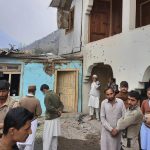
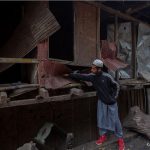
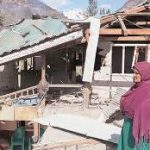
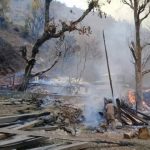
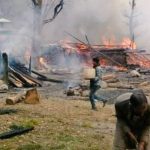

Comments